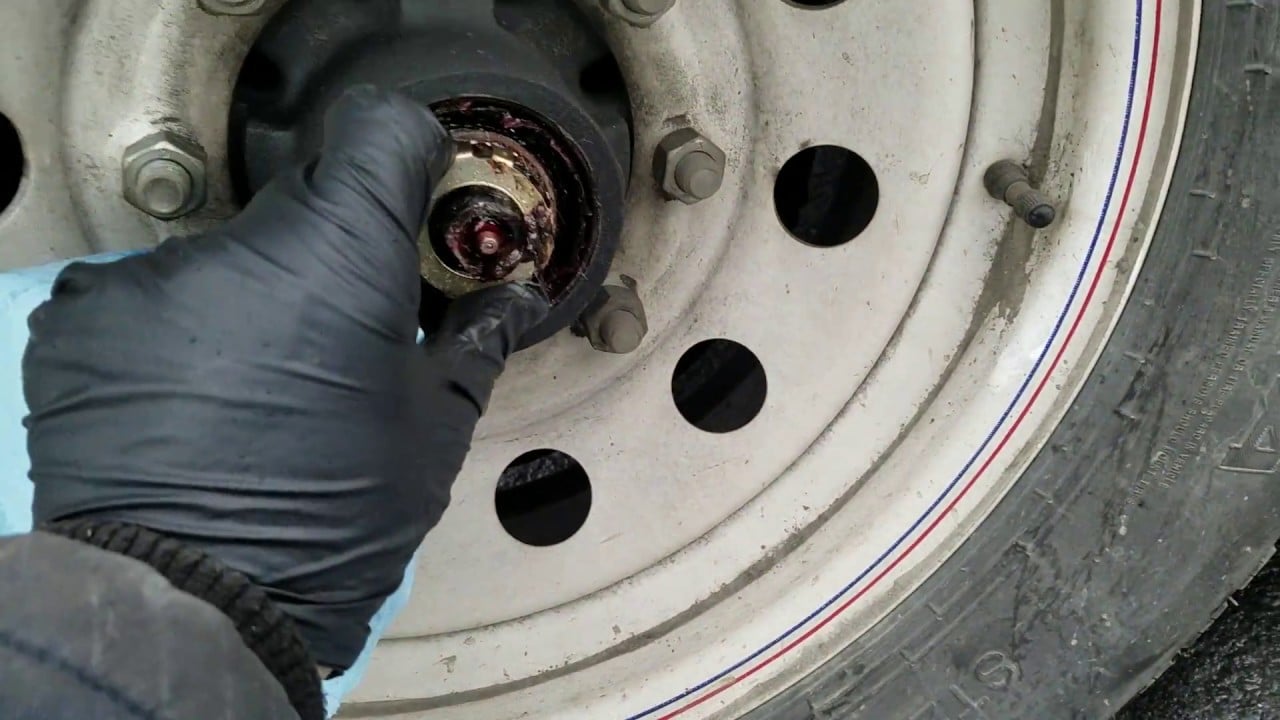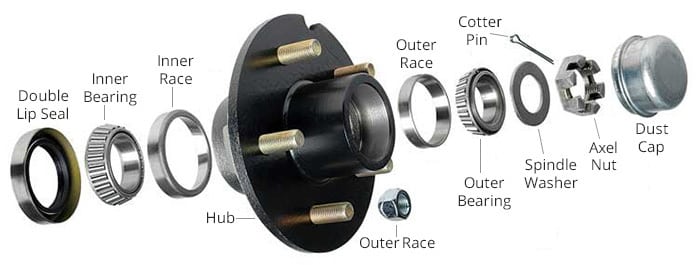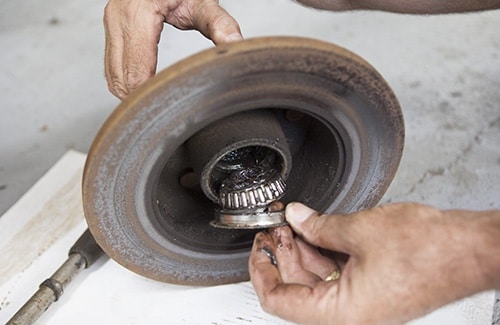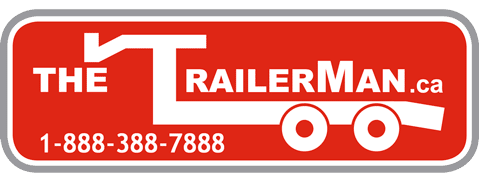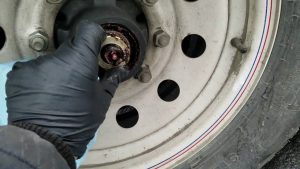Standard wheel bearing configuration consists of opposed tapered roller bearing cones and cups, fitted inside of a precision-machined cast hub. This method of using tapered roller bearings requires that a minimal amount of axial end play be present at assembly. This end play is essential to the longevity of the bearings service life. It is normal to have small amounts of movement in the wheel bearings. This design is typically lubricated with grease, packed into the bearings. Oil lubrication is another method which is more commonly found on marine applications.
Inspecting and repacking these components should take place every 20,000km or once a year.
Once disassembled it is important to clean and look for signs that the bearing need to be replaced. If any pitting, spalling, corrosion or discoloration are present, then the bearing must be replaced. The bearing cup inside the hub should be inspected. This surface is usually the easiest to see if there are any problem. Bearings must always be replaced in sets of a cone and a cup. It is recommended to replace all bearings in a hub if one is showing signs of failure.
